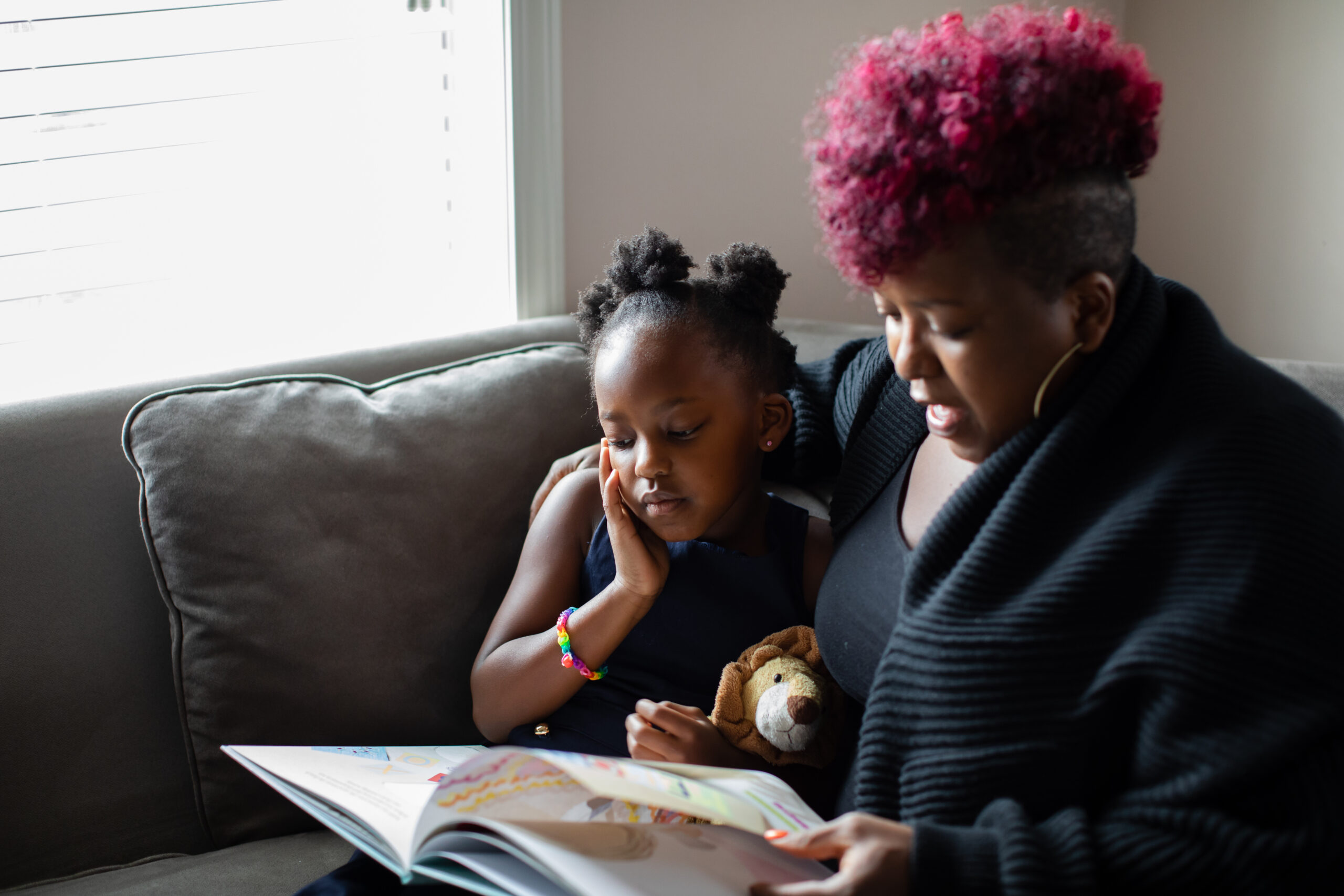What is the project about?
The aim of this project was to follow up children who had previously undertaken a randomised controlled trial, (the Early-years Provision In Children’s Centres (EPICC) trial; Murray et al., 2023) to determine whether a dialogic book sharing intervention for parents of children aged two to three years in Children’s Centres in Reading, UK, was associated with better child developmental outcomes and parenting. The original EPICC trial indicated positive effects of the intervention for parenting, and also for children’s language and attention, particularly for those children whose parents were highly engaged with the intervention (Murray et al., 2023). The aim of this follow up was to see whether this intervention, delivered around two years earlier, would have an enduring impact on children’s progress in their first year of primary school. Consent was obtained for 127 children to participate in the follow up, who were assessed in two waves to capture the year in which they started school. Unfortunately, the covid-19 pandemic hit in the middle of the project, between the two waves of assessments, which had a negative impact on data collection, but at the same time provided some insights into the effect of the pandemic on children’s learning. We assessed children’s early literacy, reading motivation, language, school adjustment, socio-emotional development and Early Years attainment, as well as the home literacy environment (the range of literacy-related activities engaged in at home).
Analysis of follow-up data revealed that there were no significant differences between the intervention and control groups in the key outcome measures, but this should be interpreted in light of the fact that at baseline (before the dialogic book sharing intervention as part of the EPICC trial), the control group actually recorded much higher vocabulary scores that controls. The fact that the children in the intervention group now performed as well as children in the control group gave some indication of a catch-up effect associated with the book sharing intervention. The study also revealed some concerning implications of the covid-19 pandemic: children in Wave 2 showed lower performance on early reading measures, increased screen time, and reduced school adjustment than children in Wave 1 who were assessed before the pandemic. Finally, it was notable that the measure of vocabulary taken at the start of the initial EPICC trial, when children were aged between two and three years, continued to be a strong predictor of child outcomes after two terms of formal schooling. This underscores the importance of research aimed at improving language skills in early childhood.
Who is/was running the project?
Daisy Powell (PI), Lynne Murray and Peter Cooper (PCLS; Co-Is)
Who funded the project?
Nuffield Foundation

